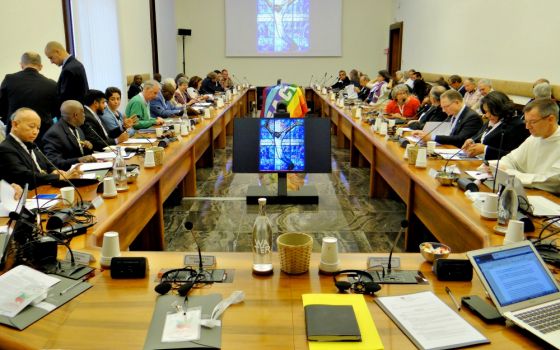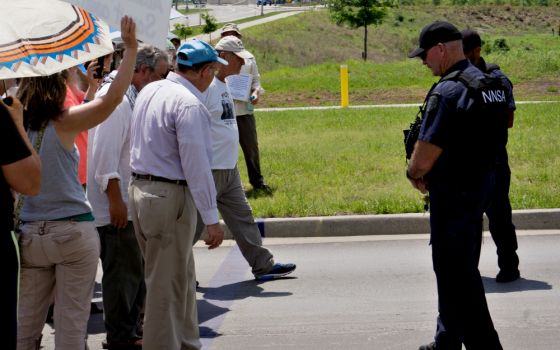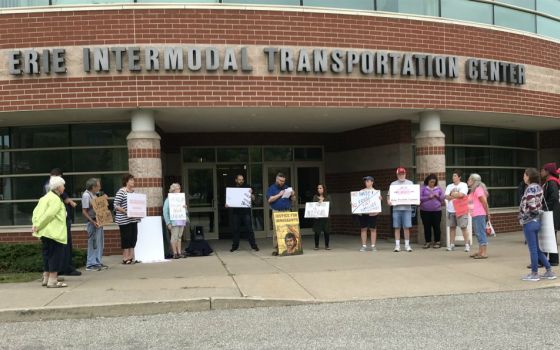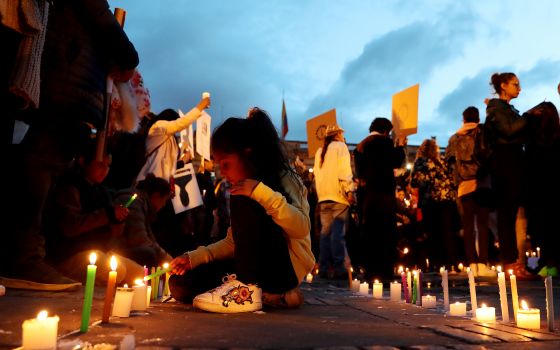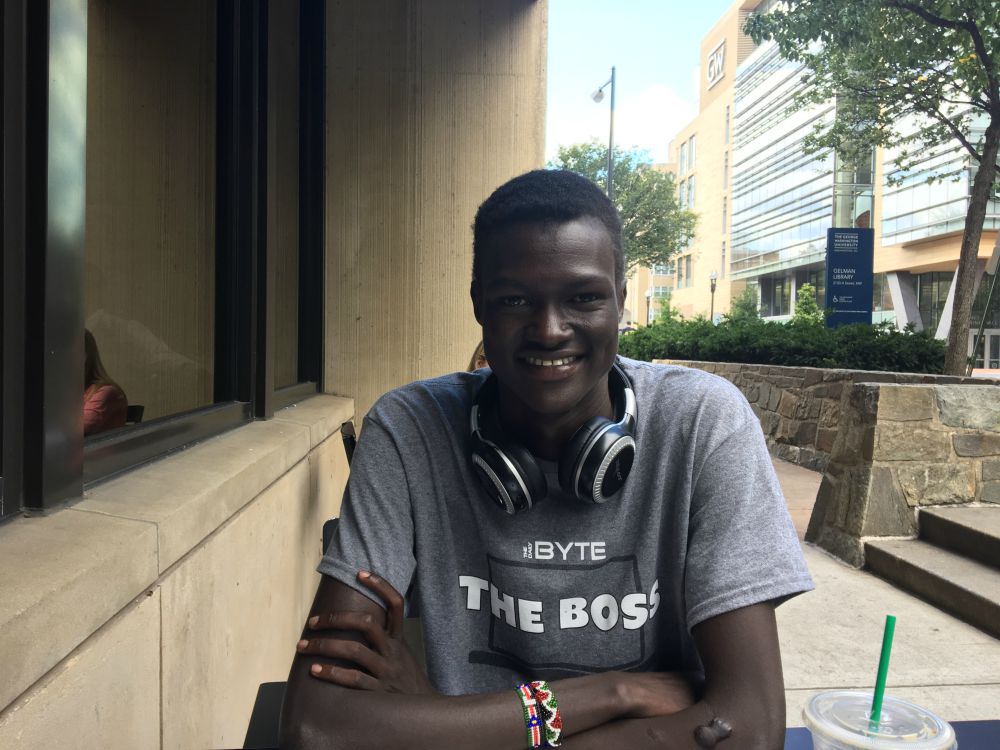
Lual Mayen's company, Junub Games, employs about 20 software engineers, designers and developers, most of them volunteers in Uganda and South Sudan. (Julie Bourbon)
If the last thing you think about when somebody mentions "gaming" is "peace," then you don't know Lual Mayen. The South Sudanese software engineer turned game designer is part of a movement creating and promoting "games for change," and he's hoping to reach young people in conflict zones, in camps for refugees and the internally displaced to teach them about peace.
His company, Junub Games, employs about 20 software engineers, designers and developers, most of them volunteers in Uganda and South Sudan. "Play peace!" is a tagline on the site's homepage. "Sharing peace & love through gaming" is another.
How, you ask, does a young man who was raised in a refugee camp learn to program computers, travel to the United States, and become a finalist in an international PeaceTech Accelerator program supported, in part, by Amazon Web Services? Mayen credits his success to his education, and his mother's tireless efforts to ensure that he secured one, despite the many obstacles he faced growing up in the midst of civil war.
"When we were in Uganda, in the refugee camp, education was not so perfect. I could not go to a very good school," said Mayen. "When I got to high school, my mom was a tailor and used that to pay for school fees. And then I had to struggle, and I was having that gift for the knowledge."
Mayen, 23, is slim and soft-spoken. In jeans and a T-shirt, with headphones around his neck, he still looks like a college student. He has been living in the Washington, D.C., area for a few months, working at the World Bank and traveling back and forth to South Sudan and to gaming conferences, seeking funding for his apps and board and card games.
Advertisement
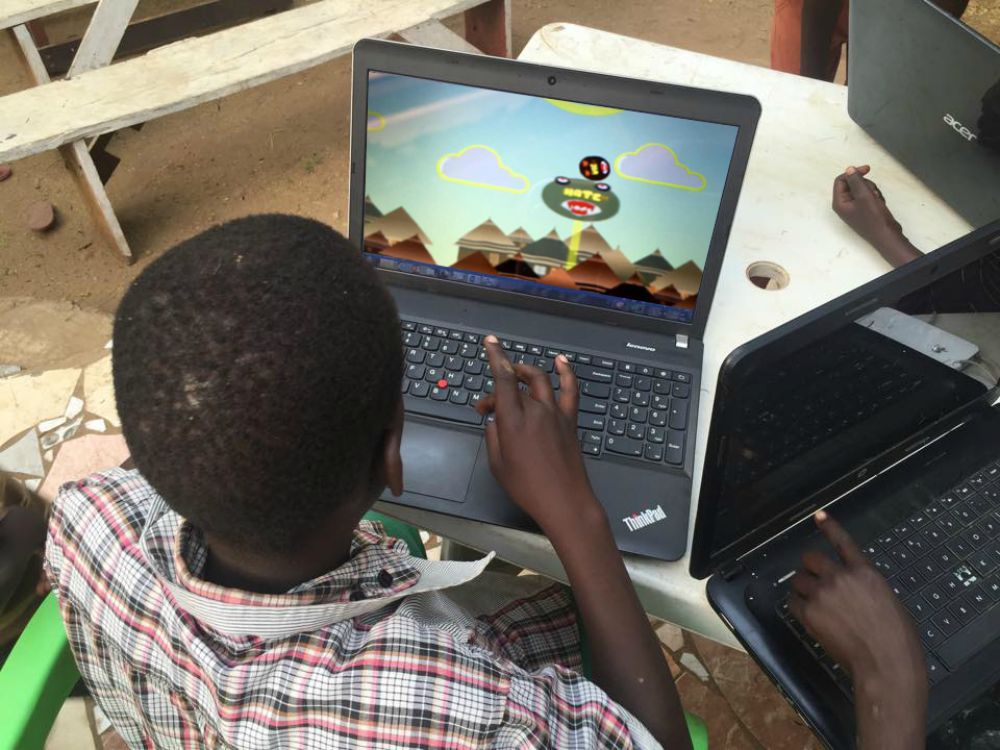
Children play with the "Salaam" game in Juba, South Sudan. (Courtesy of Junub Games)
He was first exposed to computers in Uganda, outside the Rhino refugee camp where his parents and four siblings still reside. Mayen took a few classes at a training center and was hooked, buying his first computer at age 17. From there, he pursued studies in software engineering at Makerere University in Uganda.
While still a student, he created a mobile banking service and an app to help travelers find hotels. He went back to South Sudan in 2014, after the brokering of a peace treaty, and founded a company called Citycom Technologies, the money from which helped to fund his studies. He hosted the Computer Bridge for Innovation and Technology conference in 2015, attracting the attention of the country's minister of agriculture.
But he couldn't get any government funding, and when war broke out again in 2016, he returned to Uganda and graduated from college, although he couldn't afford to participate in the commencement ceremony. That's when Mayen, who was raised Catholic, had an epiphany about how he should be using his talents.
"You know, in my life, I've come to so many ideas that could have helped me," he said, but the opportunities weren't there because of war. "Most people can just be told 'get your gun and kill your brother,' and they will do it. They have no inspiration. Education is better than making guns. Me, now you can't come to me and say 'get a gun' because I know the value I have."
"Education changes minds and attitudes to each other," he added. "It's really very important because I believe that it's God who gives the knowledge."
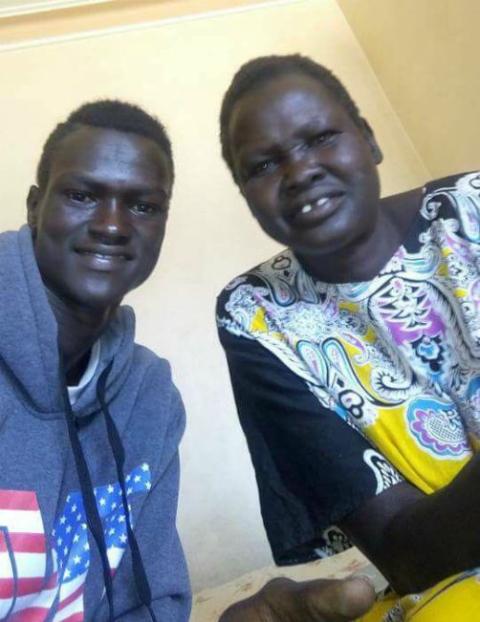
Lual Mayen and his mother, Duraka Nyantet (Provided photo)
Mayen, whose website notes that 73 percent of the population of South Sudan is under age 30, realized that there is one thing that brings young people together in his country — in almost any country — and that is an interest in technology and entertainment.
"So, I changed from software engineering to video games," he said. But not just any games. He wanted to create games that could teach his young countrymen and women about the possibility of peace.
His first game app, Salaam — "peace" in Arabic — can be played on Android phones; he's working on an iPhone version. By tapping on the screen, players draw a heart of love that destroys the tools of war and earns them the name of peacemaker. A card game called Wahda — with cards labeled love, hate, war, and peace — has been distributed to the Rhino and Nyumanzi refugee camps in Uganda. He's also working on a board game called Hate Cope that counters tribal hate speech.
"It's my belief that we can have games that do more to change the world. That's why I'm so excited about the work that Lual is doing," said Matthew Lee, chair of the International Game Developers Association's serious games group, an association of more than 12,000 video and computer game developers worldwide that is based in New Jersey. "I'm trying to get them more attention from the gaming community and from the industry, because right now they're doing such important things, but they're not getting the attention they deserve."
Lee and Mayen have not yet met in person, even though they have a virtual relationship through the gaming community. Confusion at the American embassy in Nairobi about the difference between South Sudan and Sudan, which was then covered by the president's travel ban, prevented Mayen from traveling earlier this year to a gaming conference in San Francisco, but Lee hopes they will meet in the spring, at another international gathering of gamers.
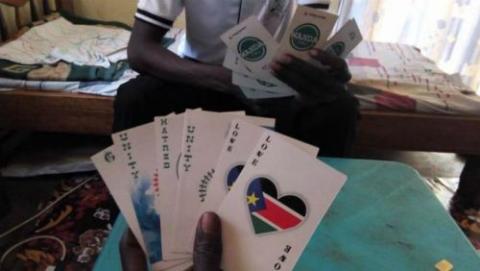
Two people demonstrate the Wadda card game by Junub Games. (Courtesy of Junub Games)
Just this year, Mayen has attended the Games for Change Festival in New York, discussed using technology to build peace at the University of San Diego, and met with game developers in Austin, Texas. His crowd-funding site has raised almost $1,400, and he hopes to raise much more.
"He constantly impresses and amazes me with everything he has managed to do and seeks to accomplish," said Lee. "Am I super surprised? I've seen the sort of person he is, the drive he has, his passion for just wanting to help people. So it doesn't surprise me, but it always impresses me."
As he waits in Washington for an extension of his visa, Mayen is planning to attend the Build Peace 2017 conference in Bogota, Colombia, in December, and continues working on the Youth4Peace project, in which young people from around the world send messages of peace to be posted on the Junub Games website.
He also hopes to get a scholarship to do further studies in the United States, where he would focus on game design, peace and justice.
"I really have some background in it," he said.
[Julie Bourbon is a freelance writer based in Washington.]





